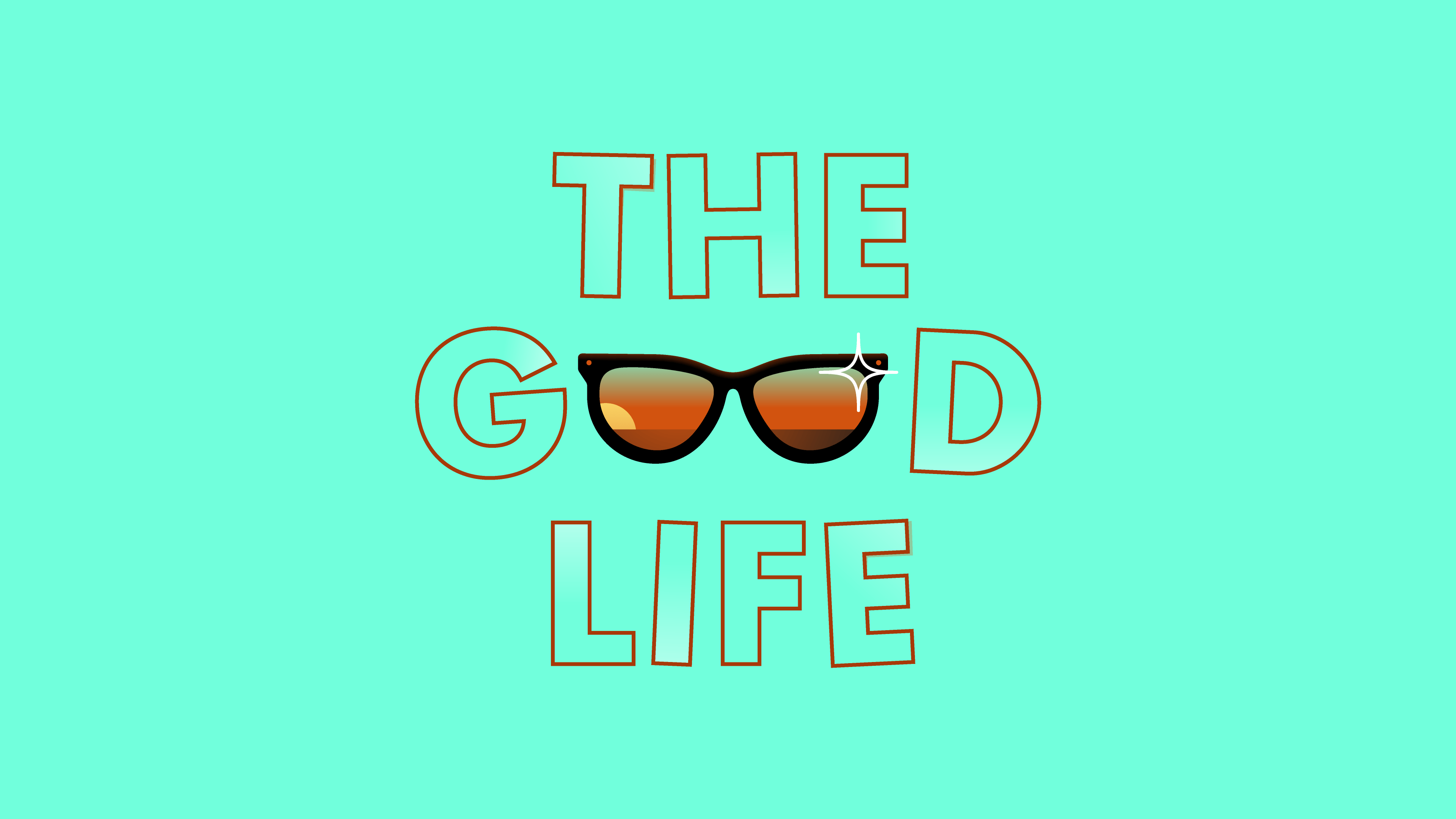Everyone I know is counting their blessings – or telling me to count mine. On Instagram, friends post their daily gratitudes. On a walk in a San Francisco park, my practical-minded lawyer friend tells me how much her gratitude journal helps her stay grounded. My therapy app suggests my husband and I list our blessings together once a week. The president of our alma mater emailed the alumni to express his gratitude for us (and, presumably, our donations). The dentist my son saw once three years ago emailed to say he was thankful for our teeth.
Gratitude is having a moment, despite – or maybe because of – the challenges of this difficult year. The vanguard now is to have what’s called a “gratitude practice”. Over the past decade, this self-care activity has grown into a full-blown wellness fad, with journals for sale designed just for gratitude logging, and organisations set up to promote the practice. There’s also a whole field of research in positive psychology focused on the benefits of practicing gratitude, how to stimulate it, and coaches who teach it.
I admit to rolling my eyes as I’ve watched this trend grow. It has seemed so embarrassingly earnest, and its use in some settings seemed hardly sincere. I once lived near a place called Cafe Gratitude, which sold US$17 vegan sandwiches with names such as “I am grateful” or “I am blessed”. The wait staff would make you ask for them by their full name, forcing you to state this “affirmation”. Ordering food from Cafe Gratitude always felt so patronising. (It was later reported that its owners were accused of involvement in a cult, which surprised exactly no one who had ever eaten there.)
Specific gratitude practices you see promoted – logging your good fortunes for a month or writing someone a thank you note – have often seemed inadvertently selfish to me, focused as they are on making yourself feel better. Still, whatever I may think about it, some of the best, most generous, empathetic, and joyous people I know swear by showing gratitude.
My next stop on this journey to find modern relevance for the age old idea of "the good life" is to understand why.
Counting your blessings
Searching Amazon for books on gratitude delivered 70,000 results but I still wanted to hear the real world stories of people’s relationship to gratitude. So I asked my Twitter followers: does practicing gratitude or – as author of Wake Up Grateful, Kristi Nelson prefers to call it: “gratefulness” – help you lead a better life?
Considering that Twitter is usually awash in complaints, outrage and snark, I was not expecting much. But immediately I was overwhelmed with inspiring answers, many from people who otherwise seemed uninterested in trendy wellness talk.

“It has made me a much happier and more positive person,” said Rachel Delphin, an executive at entertainment streaming site Twitch. “I started by spending time thinking about all that I am grateful for every day and now it’s just an instinct. Makes weathering bad news and situations more bearable; less stressful for me.”
“I went through an extremely hard time as a teenager, and one of the ways I learned to cope was being grateful for very trivial stuff, like eating cookies,” replied Louise Matsakis, an editor at the online publication, Rest of World.
I posted the same question on Instagram, and my closest friends reached out to share personal stories – about getting sober, or connecting to community; about finally reconnecting with an estranged parent or feeling less alone and less anxious; about taking control of their rage, or falling back in love with their spouse – saying they owed much of it to being more intentionally grateful.
One of my favourite answers came from my friend, Khay Muhammad Lightwell, whose father taught her and her eight siblings to be grateful. “He would share how [awed] he was about how all nine of us had all our limbs and senses and were healthy and beautiful,” Lightwell said. “As we grew older, it changed to gratitude that we weren’t locked up, strung out, raped, like many others in close proximity.” From him, Lightwell learned this: that “gratitude is like freshly ground salt on almost anything: it brings the richness out”.
Gratitude: an exercise in vanity?
Despite these stirring stories, I still had concerns about the way gratitude is practised in our culture.
In the US, gratitude is sanctioned once a year by the state, in the form of the Thanksgiving public holiday, where families and friends typically sit around a slaughtered turkey and buttered side dishes to rejoice in the simple pleasures of each other’s company – and go round the table saying what they are grateful for.
If we linger on all the things that are glorious or good about our lives, won’t that demotivate us to work to change the things that could be better?
I love Thanksgiving, but it is an incredibly problematic celebration. First, because it exists to glorify the “first meal” between European settlers and the Indigenous inhabitants of the land, and to teach children that colonists and native peoples worked in harmony, when in reality the colonists waged a long and bloody attempted genocide. This year, the holiday was also a potentially deadly affair, with people travelling and gathering indoors feared to have caused a surge in coronavirus infections. Spreading death is never a great way to express one’s thanks.
Thanksgiving seems to suggest that giving thanks is an exceptional event, as though an annual 10-minute discussion is enough to make up for living a life in which we otherwise take things for granted. What’s more, giving thanks can sound like tallying up our privileges, which seems to me uncouth in a world of so much inequality. It can also seem competitive: forcing us to compare ourselves to others so we can admit we are lucky to have it better.
The whole idea of practising gratitude also strikes me as a potential recipe for complacency, and even vanity. If we linger on all the things that are glorious or good about our lives, won’t that demotivate us to work to change the things that could be better? I put these questions to the gratitude experts.

“Is the practice of gratitude simply reinforcing the fact that I am comparing myself to somebody else? I wouldn’t say it’s the darker side of gratitude, but is definitely a question that kind of rumbles underneath,” acknowledges Amy Blankson, author of The Future of Happiness. But she adds that a gratitude practice is not about negative comparisons, and that focusing on the positive in your own life can enable you to help others.
“The ultimate use of our gratitude is to serve others and serve the world because of it. But that requires not just counting your blessings. It means leveraging your blessings,” says Nelson, who is also the executive director of a nonprofit organisation which aims to “inspire and guide a commitment to grateful living”. “Stop in your tracks. Slow the hell down. Notice what is working in your life, and then go and do something with it. That ‘go’ piece is often what’s missing in a lot of the New Age culture, which is to count your blessings and then you feel good about yourself and you sleep better.”
Turns out that while sleeping better is nice, if done right, it’s not at all the point of practising gratitude. From Nelson I learn that a shallow, performative gratitude – #blessed – is not the goal at all. It occurs to me that it is this behaviour which I have been most wary of, particularly this year when life has been so painful for so many. Telling people to be grateful when they are suffering in all sorts of real and tangible ways strikes me as not just silly but frankly cruel.
‘Gratitude is not positive thinking, it’s not happiness, and it’s not optimism’ – Kristi Nelson
“Gratitude is not positive thinking, it’s not happiness, and it’s not optimism. Actually, for me, gratefulness is something that allows us to be really profoundly in our grief and grateful at the same time,” says Nelson. “In the midst of very difficult things, we can be supported by a grateful orientation to life. So no matter how difficult it is, I can feel grateful for the fact that I’m still breathing. Breath is an important example to use right now because so many people can’t breathe unassisted.”
Lightwell also talked about the importance of breath as something we can all be thankful for. In fact her approach to gratitude, like many of the other people who shared their experiences with me, is exactly how Nelson and Blankson teach people to practise it: savour life; honour the people who have made your life possible; hold a place for joy and sorrow.
Some people seem to have an innate proclivity for gratitude, or were raised to look at the world through a grateful lens, but even if that’s not you, you can cultivate gratitude.

How to practise gratitude
There is a rich literature of scientific inquiry into gratitude, its origins, and its benefits. “These studies suggest that gratitude is an intrinsic part of being human, part of the very building blocks of human biology,” as researcher Summer Allen details in an overview of the science of gratitude, written for the Greater Good Science Center at UC Berkeley.
Research into primates suggests gratitude is an evolutionary adaptation that has helped humans survive. Genes that encourage the hormone oxytocin (sometimes called the “love hormone” because it encourages a feeling of bonding) have been found to affect how people feel and express gratitude, suggesting there may be a genetic basis to how gratitude works.
Neuroscientists have pinpointed which parts of our brains are activated by feeling gratitude. Psychologists have found that practising gratitude makes people happier and healthier, and has lasting impacts to elevate mood and perspective. And, finally, positive psychologists have been studying “the influence of grateful thinking on psychological wellbeing in daily life”.
The research “not only validates scientifically the benefits of gratitude, but can also show us how to routinise these behaviours in a way that actually sticks,” says Blankson.
A good friend, who asked not to be named, has found ways to make her gratitude practice stick. Realising that her resentment towards her abusive mother was interfering with her ability to move forward with her life, she turned to gratefulness. Everyday she takes a minute to take stock of what she is thankful for – including the life her mother gave her. Sometimes she lights a candle during those moments, in order to slow down and hold her attention.
She says that doing so has enabled her to take accountability for her own actions towards others. “I was protecting myself from shit I already survived. I was framing my gains in terms of what I’ve had to overcome," she says. "Being accountable is part of gratitude. I am grateful for the opportunity to right my wrongs and control more of how I move forward.”

Here’s the expert advice for the gratitude novice: write down three new things you are grateful for every day. As Blankson explains it, they need to be new so your brain is challenged to scan your environment and really pay attention to your surroundings. Repeating thanks for say, health or family, risks the practice becoming rote.
How you note your blessings doesn’t matter. You can write them down in a book or record them on to a phone. The idea is to do it until it becomes a habit; a way of looking at the world. “For every moment that you are training your brain to think about gratitude and positivity, it’s one less moment where you’re thinking about something negative,” says Blankson.
Nelson put it more emphatically: “Directing our attention is one of the ultimate freedoms that we have. And it’s one of the ultimate liberties. It’s something that once we realise the degree to which we have the capacity to direct our attention, it can change our whole lives.”
Just because gratitude has become commoditised, and hashtagged, doesn’t mean it isn’t a legitimately transformational way to experience life
To experience for myself what change is possible, I kept an audio gratitude log for a week. It felt awkward at first, naming my joys, I’m used to keeping those thoughts subdued. But once I got over my self-consciousness, the practice began to have an effect. One morning, in a bad mood, I forced myself to record the things I was grateful for and as much as I was feeling furrowed and annoyed, that act of focusing on three good things did change my emotional state. Afterward, I felt myself sit up straighter, hearing the birds chirping instead of my own despondent thoughts.
If I force myself to look at my day through a grateful lens, I see a different life. For example, rather than provoking annoyance, my children making a mess by playing on the kitchen floor becomes the inspiration for gratitude: they have each other and a safe home to play in. My burgeoning gratitude practice felt like having a bite of chocolate; an injection of positivity that picked me up just enough to be able to get on with my day, rather than be riled by events around me.
None of these actions on their own seem life altering, but here’s what I’ve learned: just because gratitude has become commoditised, and hashtagged, doesn’t mean it isn’t a legitimately transformational way to experience life. It acts the way an oxygen mask on an airplane does: by putting on your own first, you get the strength to assist others – and for so many, the good life is about sharing life with others and making change. Yes, you can sleep better, and you can experience more peace and presence, but you can also draw from it the motivation to go into the world and do good deeds.
On the day of writing, I was grateful for these three things: the blanket on my lap, a gift; for my parents, who adorably this year got me the same birthday present, despite being divorced since 1992; and for the chance to write you this story.
Dig deeper
 Follow the series
Check out all the stories and podcasts in Emily Dreyfuss’ series, The Good Life: a 2020 Odyssey
Follow the series
Check out all the stories and podcasts in Emily Dreyfuss’ series, The Good Life: a 2020 Odyssey
 Listen: In search of a good life
Emily Dreyfuss speaks to Eliza Anyangwe about why she’s searching for the good life, and why now.
Listen: In search of a good life
Emily Dreyfuss speaks to Eliza Anyangwe about why she’s searching for the good life, and why now.


